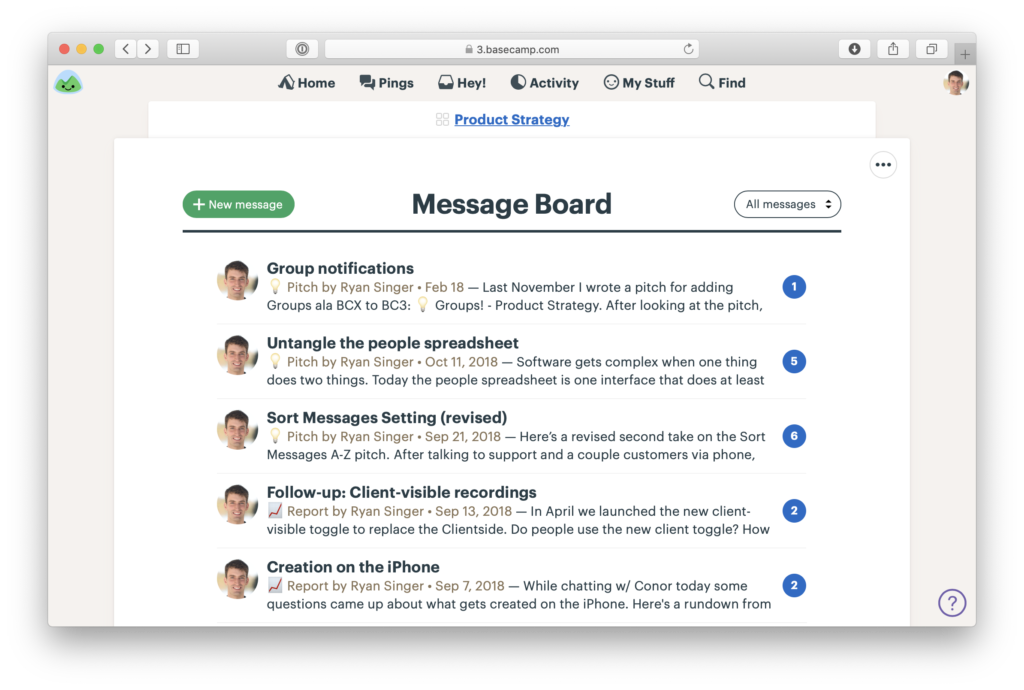Back in July of this year, our Product Manager here in the Consumer Team at Resolver moved on to a new job. This was a great loss both for us and the wider company and we knew that it would take several months to find and recruit the right person for the job. During the interim, it was decided that we would try to become somewhat self-sufficient, with our Tech Lead, CTO, and Head of Content all pitching in and directing our efforts over the following few months.
Up until this point, we had been managing our workload by having weekly meetings, led by our Product Manager, where we would discuss and prioritize incoming work. The downside to this approach was that, no matter how hard we worked, the to-do list always seemed to be growing. Sometimes, the list would get so long in fact, that we would need to refine it and move several tickets into a backlog. For visual learners like myself, this could be somewhat demotivating as the dopamine hit from finishing a ticket quickly disappeared when browsing Trello to find a seemingly never-ending list of items to work on.
We decided that this could be the perfect time to experiment and to try a new way of working. We looked into Shapeup, the brainchild of Basecamp, which promises to help teams ‘stop running in circles and ship work that matters’. Using Shapeup, Pitches are proposed as projects to work on during strict six-week stretches. Some pitches may be smaller and take less time, but never longer. If a pitch ends up over-running, it gets cancelled rather than extended. Whilst this sounds daunting, pitches are focused pieces of planned and thought-out work, with scopes small enough to ensure a thorough job is completed during each six-week cycle.
First, we embarked on a transitional period where we worked through the remaining tickets on our to-do column. This was a very satisfying few weeks, ticking off various bugs and tasks we have been meaning to do for a long time until – drum roll please – one beautiful day our board looked like this:

During those weeks, we didn’t feel it necessary to have catch-up meetings or planning sessions, seeing as we were not bringing in any new work. We also had a daily written stand-ups through Slack, so we knew what each other were working on. Whilst this enabled us to be super productive and remain focused, being a remote team, it also made me feel disconnected from the rest of the team. To combat this, we introduced a weekly coffee catch-up chat that brought us back together and was fundamental in keeping us socially connected.
Throughout the six weeks, all the developers had a think about what we would like to work on, whether it be a bug fix, a new feature, or an improvement to an existing one. Once we formulated these ideas, we wrote these into a pitch and shared them with the wider team.

This then became a space where we could discuss the ideas with the wider company, often encouraging further exploration and bringing new ideas to the pitches. It also creates a space where ideas get explored at the formulation stage, rather than building something and having to re-shape it after deployment.
We held a betting table meeting with all stakeholders, where we discussed the pitches in relation to the current business needs and objectives and picked out several tasks to commit to working on and releasing within the upcoming six-week cycle. This ensures that everything we are working on is relevant to the business and our users and also that everyone in the team has the same context and understanding of why it is needed.
The pitches that did not get picked do not get moved to a backlog or stay on the pitches page, they are removed. This creates a clean slate and allows for new ideas to keep rolling in without judgment being clouded from less relevant ideas. Of course, if a pitch is still wanted in six weeks’ time, it can always be resurrected and pitched again in the next betting meeting. This also removes the mental burden of feeling like a long never-ending list of tasks is lurking and instead rewards movement and productivity.
We are just about to start our first six-week cycle and are all very excited and optimistic to see how it works out. I will check in and keep you updated with our progress. I feel we have done a great job at managing ourselves so far, however researching pitches and finding out feasibility takes a substantial amount of time. Whilst I have enjoyed being part of this process and getting an understanding of all that it involves, I have gained a vast appreciation of the role of a Product Manager and just how much is on their plate. I think we are all looking forward to hiring a replacement in the near future!
